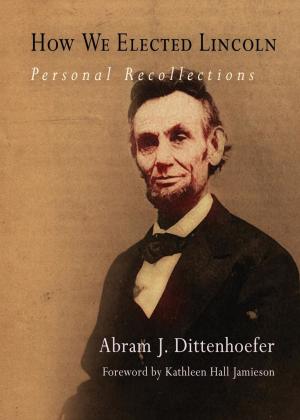Billy Graham and the Rise of the Republican South
Nonfiction, Social & Cultural Studies, Political Science, Government, Political Parties, History, Americas, United States, 20th Century| Author: | Steven P. Miller | ISBN: | 9780812206142 |
| Publisher: | University of Pennsylvania Press, Inc. | Publication: | August 23, 2011 |
| Imprint: | University of Pennsylvania Press | Language: | English |
| Author: | Steven P. Miller |
| ISBN: | 9780812206142 |
| Publisher: | University of Pennsylvania Press, Inc. |
| Publication: | August 23, 2011 |
| Imprint: | University of Pennsylvania Press |
| Language: | English |
While spreading the gospel around the world through his signature crusades, internationally renowned evangelist Billy Graham maintained a visible and controversial presence in his native South, a region that underwent substantial political and economic change in the latter half of the twentieth century. In this period Graham was alternately a desegregating crusader in Alabama, Sunbelt booster in Atlanta, regional apologist in the national press, and southern strategist in the Nixon administration.
Billy Graham and the Rise of the Republican South considers the critical but underappreciated role of the noted evangelist in the creation of the modern American South. The region experienced two significant related shifts away from its status as what observers and critics called the "Solid South": the end of legalized Jim Crow and the end of Democratic Party dominance. Author Steven P. Miller treats Graham as a serious actor and a powerful symbol in this transition—an evangelist first and foremost, but also a profoundly political figure. In his roles as the nation's most visible evangelist, adviser to political leaders, and a regional spokesperson, Graham influenced many of the developments that drove celebrants and detractors alike to place the South at the vanguard of political, religious, and cultural trends. He forged a path on which white southern moderates could retreat from Jim Crow, while his evangelical critique of white supremacy portended the emergence of "color blind" rhetoric within mainstream conservatism. Through his involvement in the Eisenhower and Nixon administrations, as well as his deep social ties in the South, the evangelist influenced the decades-long process of political realignment.
Graham's public life sheds new light on recent southern history in all of its ambiguities, and his social and political ethics complicate conventional understandings of evangelical Christianity in postwar America. Miller's book seeks to reintroduce a familiar figure to the narrative of southern history and, in the process, examine the political and social transitions constitutive of the modern South.
While spreading the gospel around the world through his signature crusades, internationally renowned evangelist Billy Graham maintained a visible and controversial presence in his native South, a region that underwent substantial political and economic change in the latter half of the twentieth century. In this period Graham was alternately a desegregating crusader in Alabama, Sunbelt booster in Atlanta, regional apologist in the national press, and southern strategist in the Nixon administration.
Billy Graham and the Rise of the Republican South considers the critical but underappreciated role of the noted evangelist in the creation of the modern American South. The region experienced two significant related shifts away from its status as what observers and critics called the "Solid South": the end of legalized Jim Crow and the end of Democratic Party dominance. Author Steven P. Miller treats Graham as a serious actor and a powerful symbol in this transition—an evangelist first and foremost, but also a profoundly political figure. In his roles as the nation's most visible evangelist, adviser to political leaders, and a regional spokesperson, Graham influenced many of the developments that drove celebrants and detractors alike to place the South at the vanguard of political, religious, and cultural trends. He forged a path on which white southern moderates could retreat from Jim Crow, while his evangelical critique of white supremacy portended the emergence of "color blind" rhetoric within mainstream conservatism. Through his involvement in the Eisenhower and Nixon administrations, as well as his deep social ties in the South, the evangelist influenced the decades-long process of political realignment.
Graham's public life sheds new light on recent southern history in all of its ambiguities, and his social and political ethics complicate conventional understandings of evangelical Christianity in postwar America. Miller's book seeks to reintroduce a familiar figure to the narrative of southern history and, in the process, examine the political and social transitions constitutive of the modern South.















